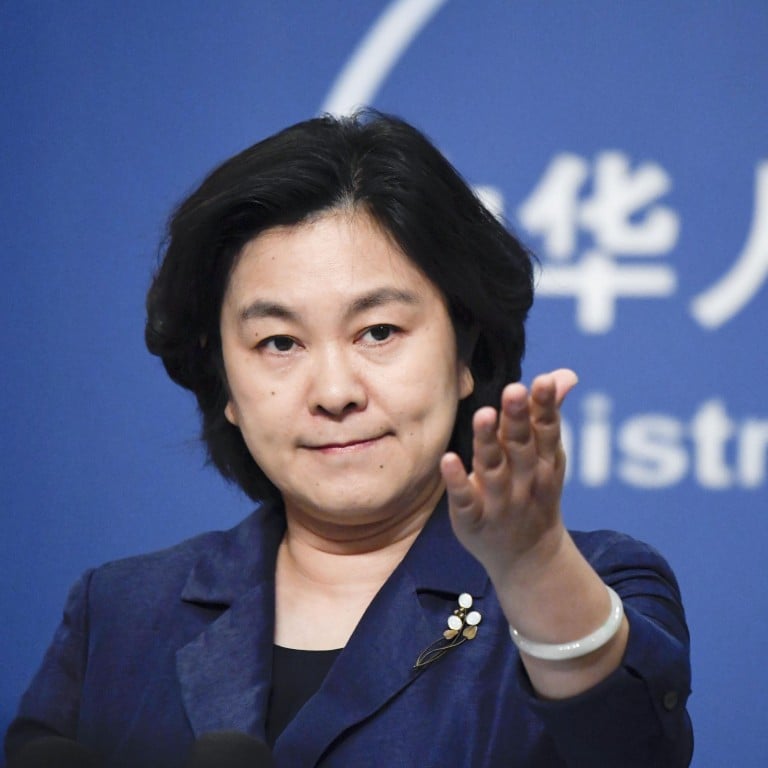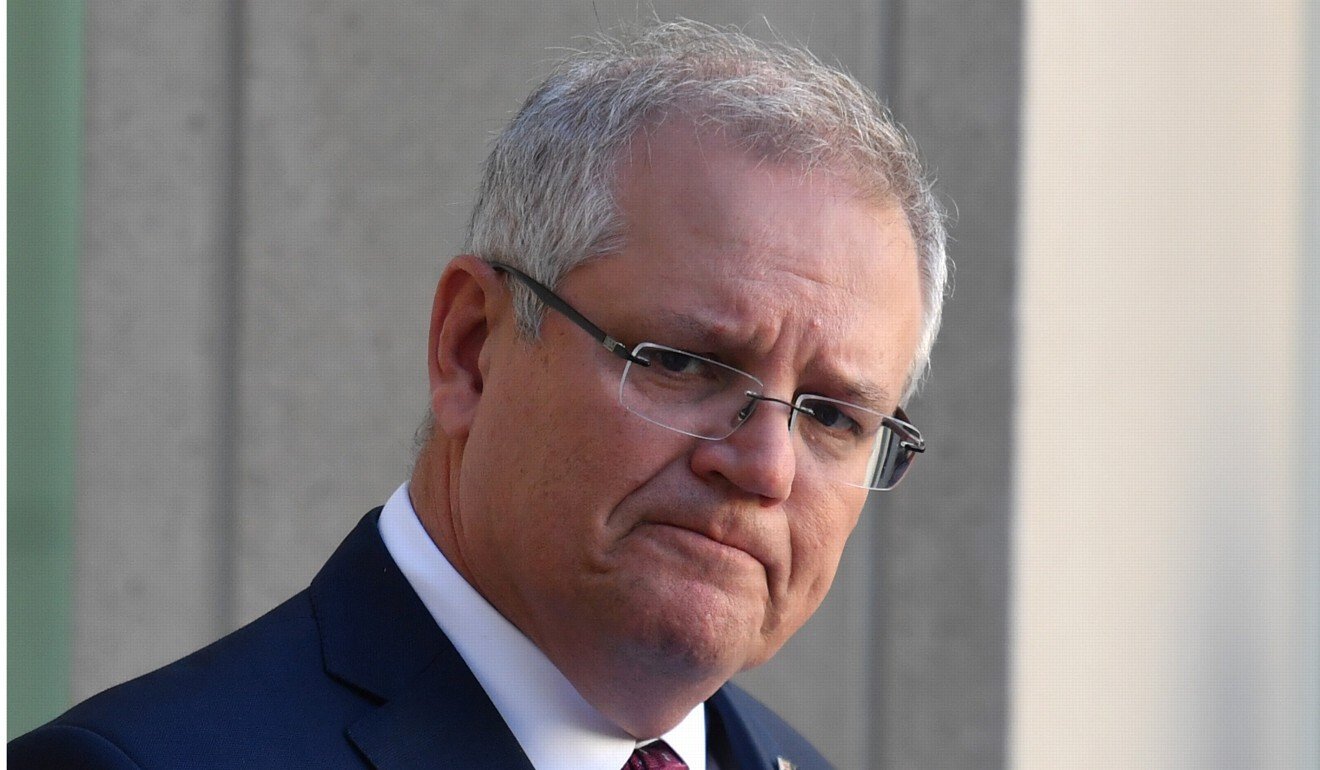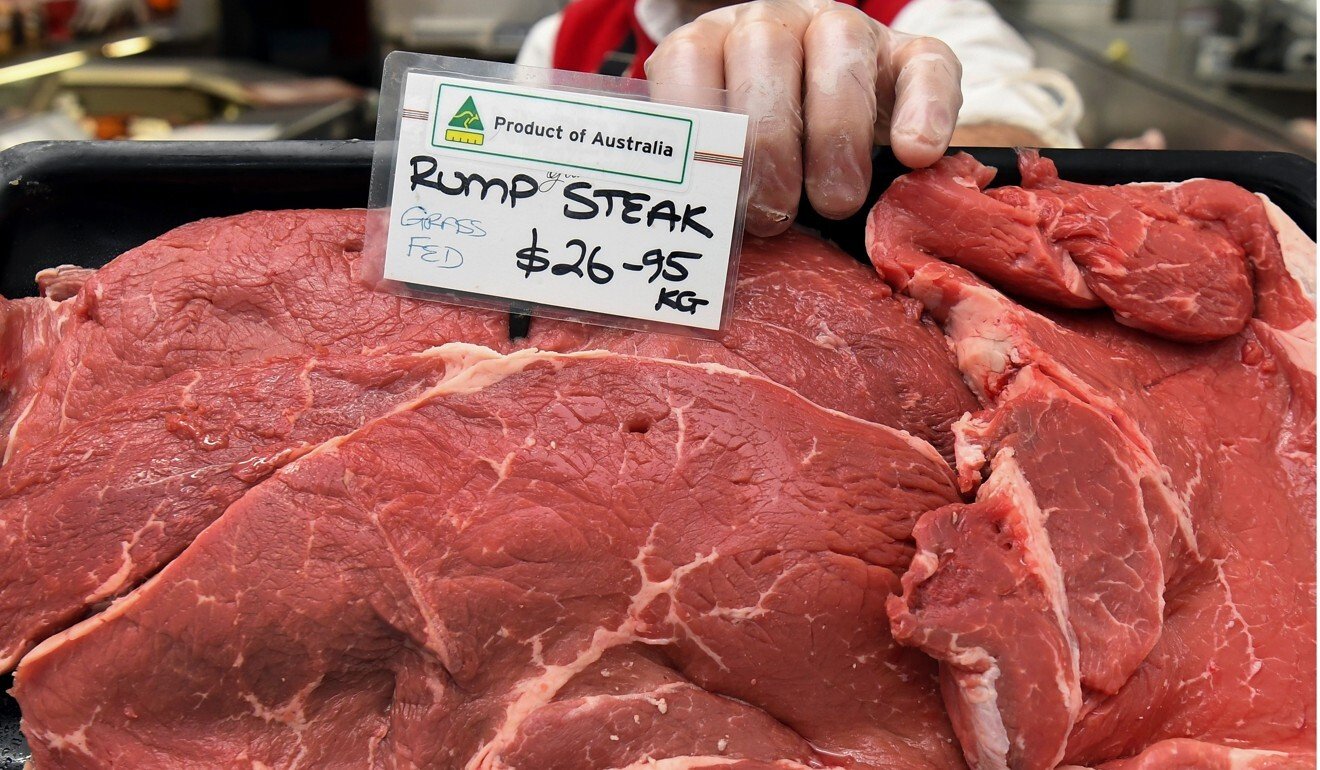
China issues fresh warnings on travelling, studying in Australia
- Canberra needs to ‘squarely face the problem’ of rising discrimination, foreign ministry says
- Latest remarks come after Australian Prime Minister Scott Morrison says country will ‘never be intimidated by threats’ or ‘trade our values in response to coercion’
Australian authorities needed to “squarely face the problem” of rising discrimination in the country, foreign ministry spokeswoman Hua Chunying said, adding that it was Beijing’s responsibility to issue warnings to protect its citizens.
“I don’t know where the Australian leader’s so-called reference to coercion is coming from, and why are ‘values’ being pulled into this too?” she said.
“As for discrimination and violence in Australia, it has been widely seen in Australian media and online for some time, and China’s embassy in Australia has received a lot of complaints and requests for help. If the Australian side is not even willing or too scared to admit these truths, then I don’t know where this so-called confidence is coming from?”

The ministry’s comments came after Australian Prime Minister Scott Morrison criticised Beijing’s warning to Chinese citizens to avoid studying in or travelling to Australia because of a rise in racist attacks on people of Asian descent during the Covid-19 pandemic.
Tensions between Beijing and Canberra have escalated in recent weeks, after Australia led calls for an independent inquiry into the origin of the coronavirus, which was first detected in the central China city of Wuhan at the end of last year.
Relations between the two countries have plunged to their lowest level in decades, with the travel and study warnings just part of Beijing’s retaliatory measures – it has also restricted imports of barley and beef from the island nation – over what it sees as Australia’s anti-China, pro-United States stance.
Morrison said in the interview that it would be up to Chinese citizens to decide whether to travel to Australia and described the allegations of racism against them as a “ridiculous assertion”.
“Australia provides the best tourism and education products in the world and I know that is compelling,” Morrison said. “One thing Australia will always do is act in our national interest and never be intimidated by threats.”
On Wednesday, the Group of Eight alliance of Australian universities described Beijing’s warning to Chinese students as “disappointing and unjustified”.

Australia’s deputy prime minister Michael McCormack also spoke out against Beijing’s allegations, saying they were based on “false information”.
“There hasn’t been a wave of outbreaks of violence against Chinese people,” he said. “I don’t know why this has been stated. I don’t know. I don’t know what was in the thinking of the organisation or the person who made the statement. But all I can say is the statement is not true.”
Trade Minister Simon Birmingham said on Thursday that he also did not believe there had been an increase in racist attacks against Chinese students in Australia.
However, hundreds of people of Asian descent have reported racial discrimination in Australia in recent months, with the Australian Human Rights Commission saying that a third of all complaints involving racism it received since February were related to Covid-19.
China’s commerce ministry said on Thursday it was closely monitoring developments regarding the proposed changes to Australia’s foreign investment law aimed at bolstering national security and would increase scrutiny of overseas investors in sensitive areas.
“We hope the Australian government will uphold an open and pragmatic investment policy, strengthen its communication with foreign investors … to create a fair and non-discriminatory investment environment … that will protect the legal rights of all [investors] … including Chinese ones,” ministry spokesman Gao Feng said.
Adam Ni, director of the China Policy Centre think tank in Canberra, said there had been a significant rise in racism related to Covid-19, but Beijing had politicised the issue as its relationship with Australia had fallen to its lowest point in decades.
“For China, I think it’s a matter of showing that it can punish what it perceives to be misbehaviour, or behaviour that impinges on its interests,” he said.
“So I think it can get worse than barley, beef, education, tourism – there is still potential for other areas of confrontation, depending on how the relationship shapes out.”
Additional reporting by Su-Lin Tan

